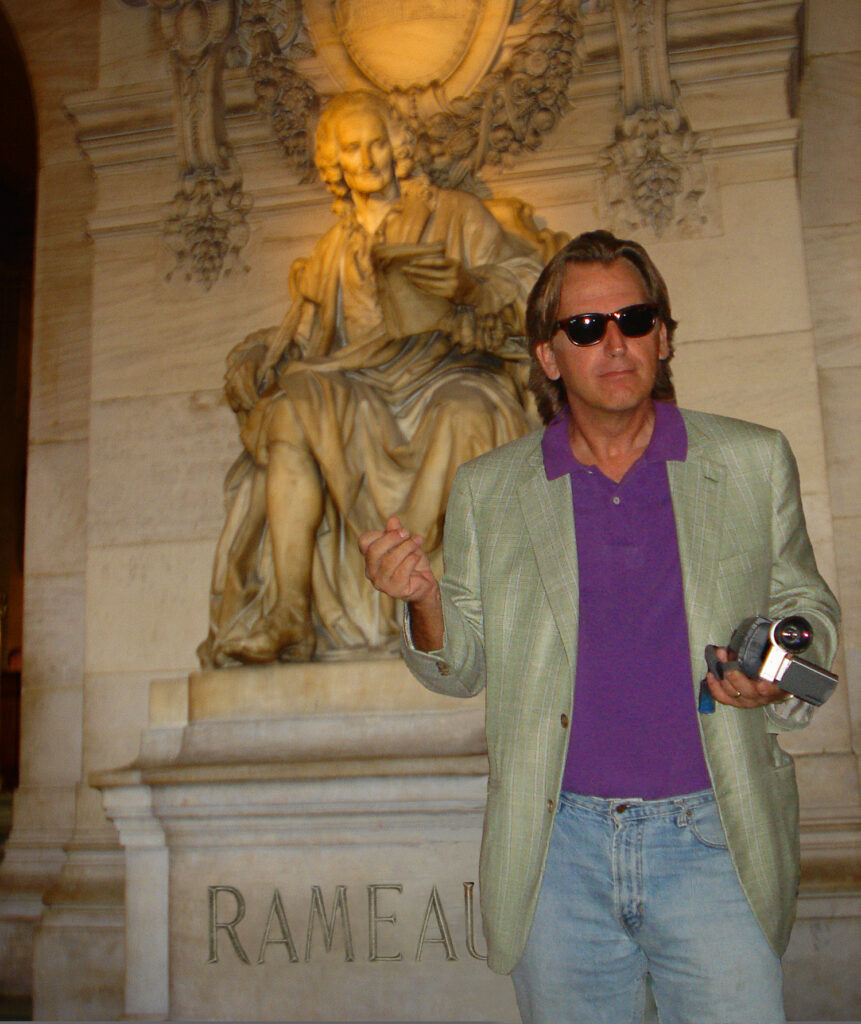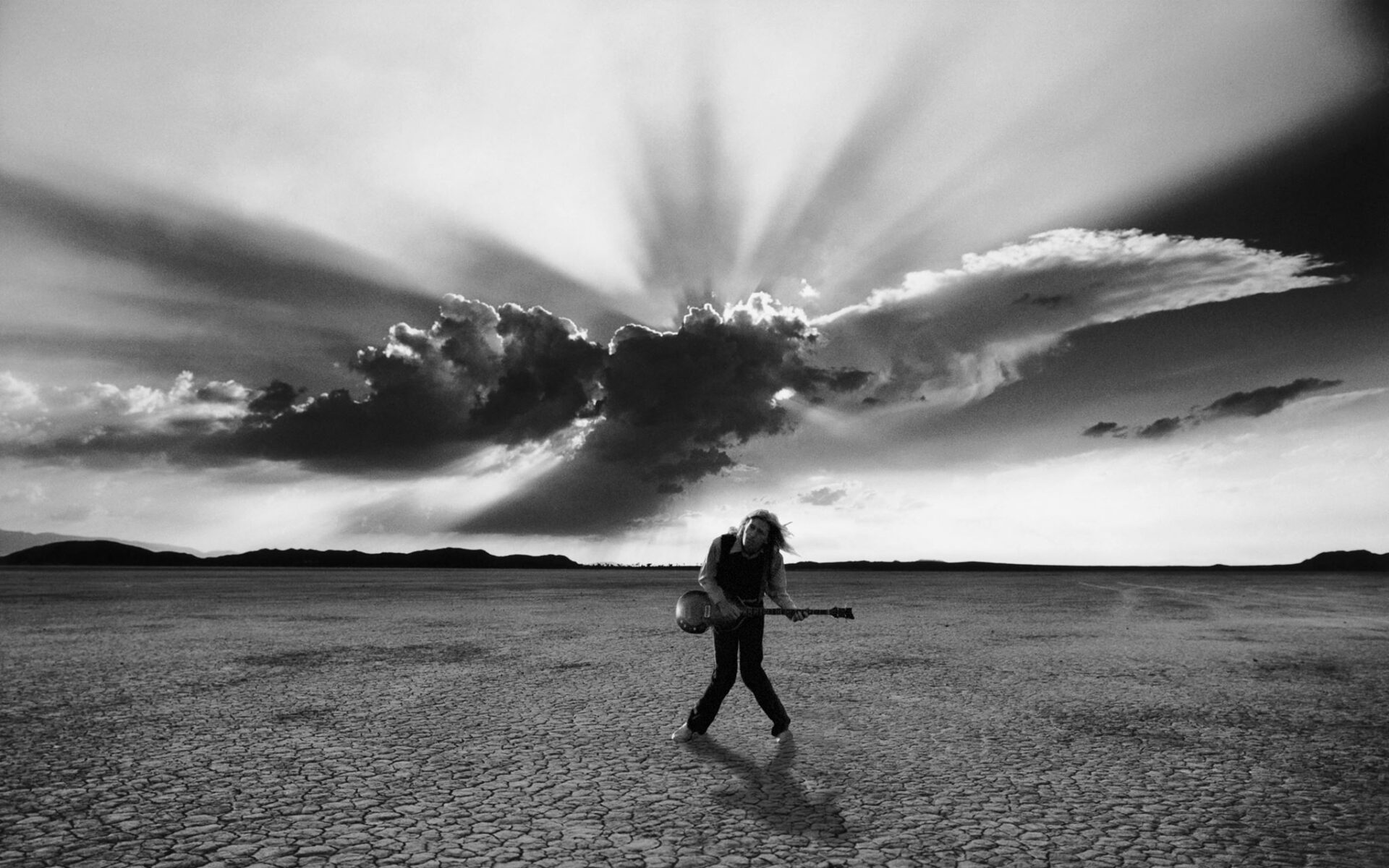Multi-instrumentalist JACQUES BAILHÉ plays the sitar, guitar, drums, piano, and keyboards. He doesn’t give chords much thought. Although he hastens to add that he never studied in formal settings outside a Harmonic Analysis class in a UCLA Extension course, he appears to work from independent melodic lines in the tradition of counterpoint. His father, great uncle, grandfather, and grandmother were all musicians in their youth. Check out the exclusive interview below:

1. Can you tell us a bit about where you come from and how it all got started?
JACQUES BAILHÉ: I’m from a small town in the U.S., Wilton, Connecticut. Fascinated with music since I can remember. Elementary school lessons on clarinet, trumpet, bashed around on piano and drums. Mostly tried to jam with records. Family moved to Thailand at 13. Joined my first band there on drums. Played a solo behind a fire-breathing stripper in a Bangkok roller skating rink! Switched to bass guitar. Had some lessons on Sitar in India and Nepal. Ordained as a novice Buddhist priest in Bangkok for summer break from schjool. Picked up guitar. Back in the U.S., spent some years touring on bass with the Folk-Baroque band Big Lost. Made an album. Gave up and went to film school, then on to producing hundreds of commericals and music, winning numerous awards, including with Dolly Parton for her amusment park. Then decided to compose full-time.
2. Did you have any formal training or are you self-taught?
JACQUES BAILHÉ: I’d say I’m self-taught except I learned so much from other players, and later, working with some of the LA’s finest studio players, composers, and engineers at Paramount Studios, Todd-AO, Sony Studios, Margartia Mix and LA Studios, Columbia Records, etc.
3. Who were your first and strongest musical influences and why the name ‘JACQUES BAILHÉ’?
JACQUES BAILHÉ: Biggest early influences were Sinatra, Armstrong, Ellington, Getz, Beatles, Hendrix, and all of R&B—especially Aretha. My name comes from my father’s family in Gaillac, France, a small farming town in the Basque region in the south. It’s pronounced ZHAK BUY-YAY. My grandfather, George Bailhé was a fine pianist, wrote some music for C.B. Demille in Hollywood.
4. Do you feel that your music is giving you back just as much fulfillment as the amount of work you are putting into it or are you expecting something more, or different in the future?
JACQUES BAILHÉ: It’s my bliss.

5. What do you feel are the key elements in your music that should resonate with listeners, and how would you personally describe your sound?
JACQUES BAILHÉ: I write in a variety of genres, from classical to jazz to “I don’t know what to call that” and freely mix them. I’m driven by emotion and the urge to explore and discover.
6. What’s your view on the role and function of music as political, cultural, spiritual, and/or social vehicles – and do you try and affront [confront] any of these themes in your work, or are you purely interested in music as an expression of technical artistry, personal narrative, and entertainment?
JACQUES BAILHÉ: Can I say, “All of the above?”
7. For most artists, originality is first preceded by a phase of learning and, often, emulating others. What was this like for you? How would you describe your own development as an artist and music maker, and the transition towards your own style, which is known as CLASSICAL?
JACQUES BAILHÉ:
Yeah, emulation is where I began too, but it seems like I’ve always been composing. It’s fundamental to improvisation. Whether it’s a quiet or loud piece, I like to make emotional drama. I study scores and read about music all the time, but I take all theory of form, harmony, and counterpoint only as suggestions. I suppose my music falls into the overall category of Jazz since whether I’m writing classical or jazz, it’s based on improvisation. Bach is considered “Classical” or “Baroque,” but people forget he came to fame as a red-hot improviser— in his day and earlier, a prerequisite for a gig as a church organist. I laugh about him being chastized for using exotic intervals. In many of his pieces I hear Jazz. These days we have all sorts of genres and subgenres, and that’s fine, but as someone once said, “There are really only two kinds of music: good and bad.” Of course, even that comes down to the personal taste of each listener.
8. Could you describe your creative processes? How do usually start, and go about shaping ideas into a completed song? Do you usually start with a tune, a beat, or a narrative in your head? And do you collaborate with others in this process?
JACQUES BAILHÉ: Most everything starts with improvisation to find something interesting to build from, and sometimes a story starts to develop, as in my pieces for dance. I like to let my subconcious work and follow my emotions. Some pieces start in notation, but that usually comes later when I’m arranging, jumping around from overdubs to editing, to midi and so on. Then on to mixing and more arranging. When I’m getting close to done, I do like to get opinions from musician friends and others, but otherwise, I work by myself.
9. With social media having a heavy impact on our lives and the music business in general, how do you handle criticism, haters, and/or naysayers in general? Is it something you pay attention to, or simply ignore?
JACQUES BAILHÉ: I listen to any reviews and comments, good or bad. Sometimes they notice something I haven’t.
10. Creative work in a studio or home environment, or interaction with a live audience? Which of these two options excites you most, and why?
JACQUES BAILHÉ: Performing live has always been exciting, but these days I’m in heaven when I’m composing. Experimentation and discovery is endlessly thrilling.
11. Do you think is it important for fans of your music to understand the real story and message driving each of your songs, or do you think everyone should be free to interpret your songs in their own personal way?
JACQUES BAILHÉ: Composers can intend a message, but whether or not listeners are interested in it, or even hear it, seems naturally up to them.
KEEP IN TOUCH:
FACEBOOK | INSTAGRAM | TWITTER | SPOTIFY | BANDCAMP | YOUTUBE

